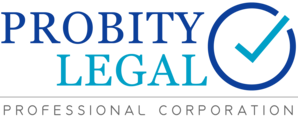FAQs on Notary Services
A Notary Public is an individual appointed under the Notaries Act, RSO 1990, c N.6, who may do such things as: certify documents, witness signings, and commission oaths. A Notary Public is a public servant appointed by state government to witness the signing of important documents and administer oaths. A Notary Public is a third-party witness to not only the signature of a document but also the fact that all parties who signed did so willingly and under their own power.
A Notary Public has much broader authority than a Commissioner of Oaths. A Notary Public can “notarize” copies of documents (verify as a true copy). Under section 3 of the Notaries Act, they can also: “…exercise the power of drawing, passing, keeping and issuing all deeds and contracts, charter-parties and other mercantile transactions in Ontario, and also attesting of all commercial instruments…”.
A Commissioner for taking affidavits (also called a Commissioner of Oaths) only has authority to administer oaths and take affidavits. The authority is given under the Commissioner for Taking Affidavits Act.
Barristers and solicitors in Ontario are automatically Commissioners for taking affidavits. They also have the automatic right to be Notary Public; however, in order to exercise the Notary Public function they must apply for and obtain a notary public seal.
Having a Notary Public witness a signature serves as a powerful risk management tool that prevents fraud and identity theft, among others. Documents are notarized to deter fraud and to ensure they are properly executed. An impartial witness (the Notary) identifies signatories to screen out impostors and to make sure they have entered into agreements knowingly and willingly.
A notarized copy is a photocopy of an original document that has been certified by a Notary Public to be a true and accurate copy of the original document. A notarized copy is sometimes referred to as a certified copy.
- 1) A Notary Public will verify the identity of the deponent (usually by examining photographic identification).
2) The Notary Public will then verify that the deponent has read and understands the document being commissioned.
3) The deponent will then affirm or swear that the contents of the document are true and correct.
4) The deponent will then sign the document in front of the Notary Public.
5) The Notary Public will then sign the document, seal the document, and certify on the document that an oath or solemn declaration has been duly commissioned.
Contact Us
Contact us for more information on our comprehensive legal services. We provide services in English, Hindi, Marathi, Kutchi and Gujarati. We look forward to speaking with you!
